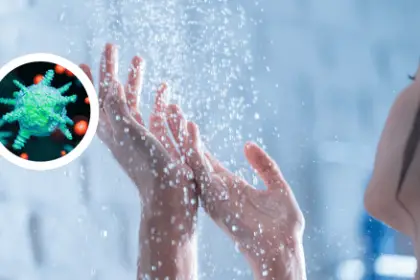Lesser Mealworm Larvae: A Surprising Ally in the Fight Against Plastic Pollution
Scientists have uncovered a potential breakthrough in combating plastic waste: the ability of lesser mealworm larvae to consume and degrade plastic. This discovery, led by researchers from the International Centre of Insect Physiology and Ecology (ICIPE) in Kenya, suggests that these beetle larvae, native to Africa but now found worldwide, could play a significant role in addressing the global plastic crisis.
The Scope of the Problem
Africa ranks as the second-most plastic-polluted continent globally, despite contributing just 5% to the world’s plastic waste, according to the World Health Organization. Plastic pollution remains a pressing issue, with much of the waste ending up in the environment, particularly in regions with limited waste management infrastructure.
A Plastic-Digesting Powerhouse
Published on September 12 in Scientific Reports, the study highlights how lesser mealworm larvae can digest polystyrene, a plastic commonly used in Styrofoam food containers and packaging. Remarkably, the larvae consumed nearly 50% of the polystyrene they were fed, with efficiency improving when the plastic was mixed with bran or grain husks.
While researchers are uncertain of the larvae’s exact species—suspecting it might be a previously unidentified subspecies—this is the first time the lesser mealworm’s plastic-degrading capabilities have been documented.
The Role of Gut Microbes
The secret to the larvae’s plastic-degrading abilities lies in their gut microbiome. Bacteria such as Kluyvera, Lactococcus, and Klebsiella produce enzymes capable of breaking down the complex polymers in polystyrene. These enzymes turn the plastic into simpler compounds that the mealworms can process safely.
Study co-author Fathiya Khamis noted that leveraging these bacterial communities could enhance the larvae’s efficiency without harming them. This could open the door to scaling up the process for recycling applications.
Future Possibilities
Beyond the direct use of mealworms, the researchers envision isolating and amplifying the specific bacterial strains and enzymes responsible for plastic degradation. These could be applied in industrial processes to recycle plastic waste more effectively.
In addition, the study raises the possibility of converting plastic waste into high-value insect protein for animal feed. This dual-purpose approach could address both pollution and the demand for sustainable protein sources.
Next Steps
The researchers aim to delve deeper into the mechanisms driving plastic degradation in lesser mealworms. “We want to understand if the bacteria are inherent in the mealworms or if they are a defense strategy acquired after feeding on plastic,” said Evalyne Ndotono, who conducted the study as part of her master’s research.
This discovery adds to a growing body of evidence suggesting that biological solutions, including fungi and other insects, could provide innovative ways to tackle Earth’s plastic pollution crisis.



